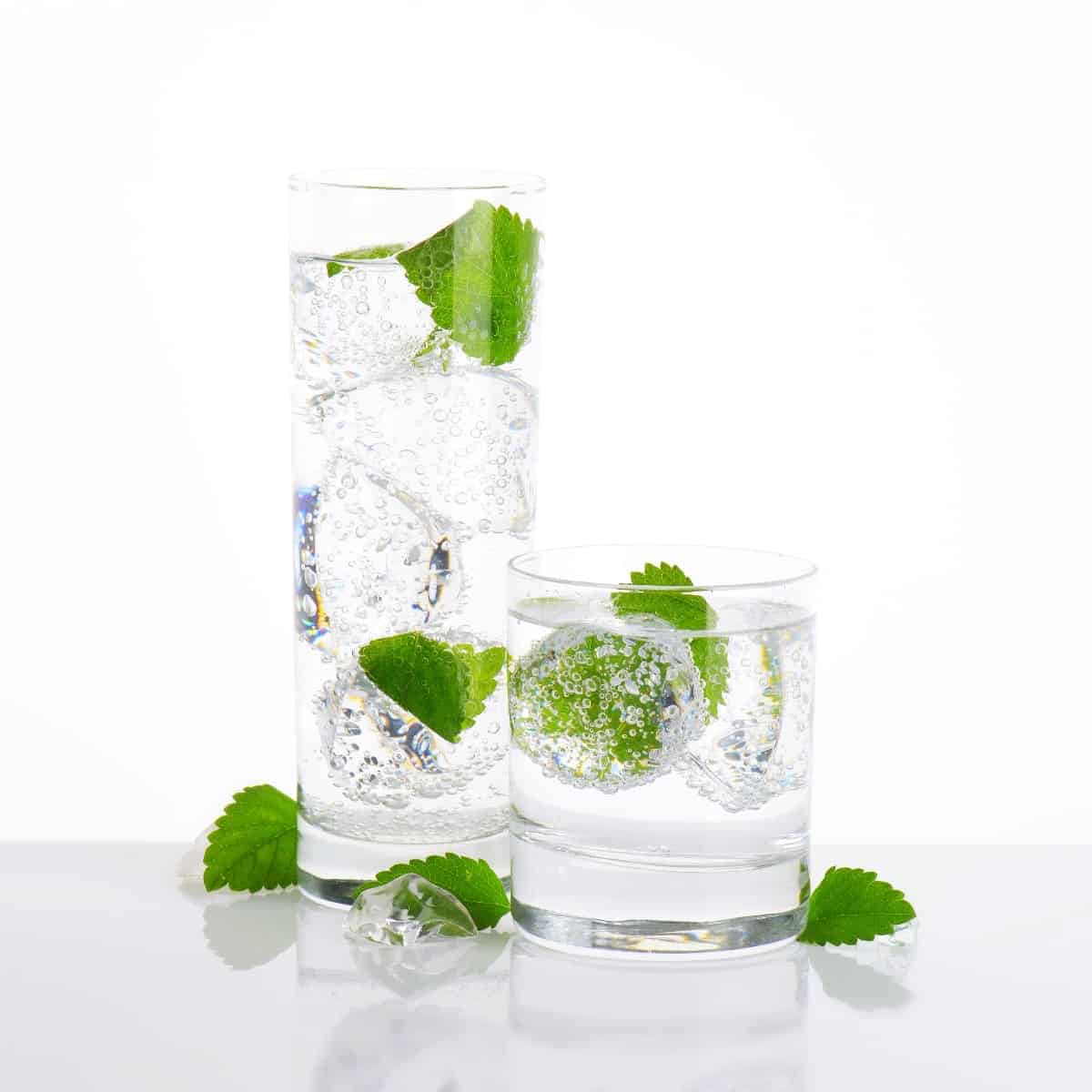
From the bubbly fizz of cocktails to the light fluffiness of your favorite pancake, club soda is that secret ingredient that breathes life into an array of culinary delights.
But what happens when you're about to add the final touch to your dish and—oh no!—you're fresh out of club soda? Don't you worry, fellow home cook!
There are plenty of good club soda substitutes that can come to the rescue and save your culinary masterpiece. In the world of cooking, versatility is the name of the game, and knowing your substitutes is an ace up your sleeve.
Jump to:
What is Club Soda?
First things first, let's get to know our key ingredient – club soda. It's a carbonated beverage that you'll often find in the same aisle as tonic water and other fizzy drinks. A lot of people ask, "Is club soda the same as sparkling water?" Well, they're similar, but there's a key difference.
Club soda, my friends, has minerals like sodium bicarbonate, sodium chloride, and occasionally potassium sulfate. These additives give it a slightly salty taste and distinguish it from its cousins—seltzer, mineral water, and sparkling water.
Club soda is odorless and colorless, and it's got this wonderful effervescence that can add a lively touch to your culinary creations or beverages.
Common Uses of Club Soda
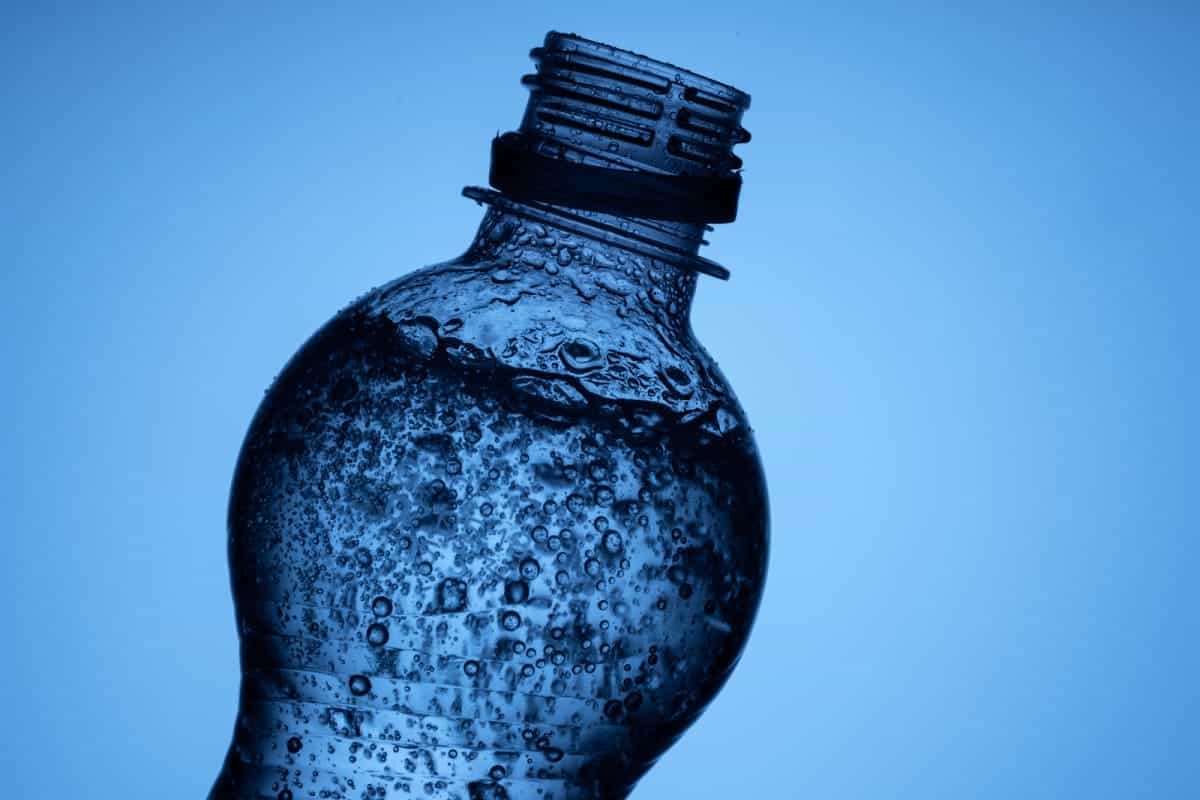
Now that we know what club soda is, let's get into the nitty-gritty – how you can use it in your kitchen. Club soda is a versatile ingredient and it's got a lot more applications than just being a mixer for your gin and tonic.
- Leavening in Baked Goods: Ever wondered how to get that light, fluffy texture in your pancakes and tempura batter? Yep, you guessed it right. Club soda. It acts as a leavening agent, helping your batter rise just right.
- Cocktails and Non-Alcoholic Beverages: Club soda is a staple in any respectable home bar. It adds a fizzy kick to your cocktails without altering the taste. If alcohol's not your thing, mix it up with some fresh fruit juice for a refreshing drink.
- Cleaning Aid: Club soda, surprisingly, is a very good cleaning agent. Those same carbonation bubbles that make it a delight to drink can also lift stains from fabrics and even clean your precious jewelry. Who knew?
- Cooking Seafood: The minerals in club soda can actually help retain the moisture in seafood while cooking, making it juicier and more flavorful. If you're a seafood aficionado, this is one trick you definitely want up your sleeve.
- Reviving Flat Champagne: Nobody likes wasting a good bottle of bubbly. If your champagne has gone flat, a splash of club soda can bring it back to life and save your day.
As you can see, club soda is quite the multitasker in the kitchen and beyond. It's more than just a drink mixer. It's an ingredient that can add that extra 'oomph' to your dishes and drinks.
Top Club Soda Substitutes
1. Seltzer Water
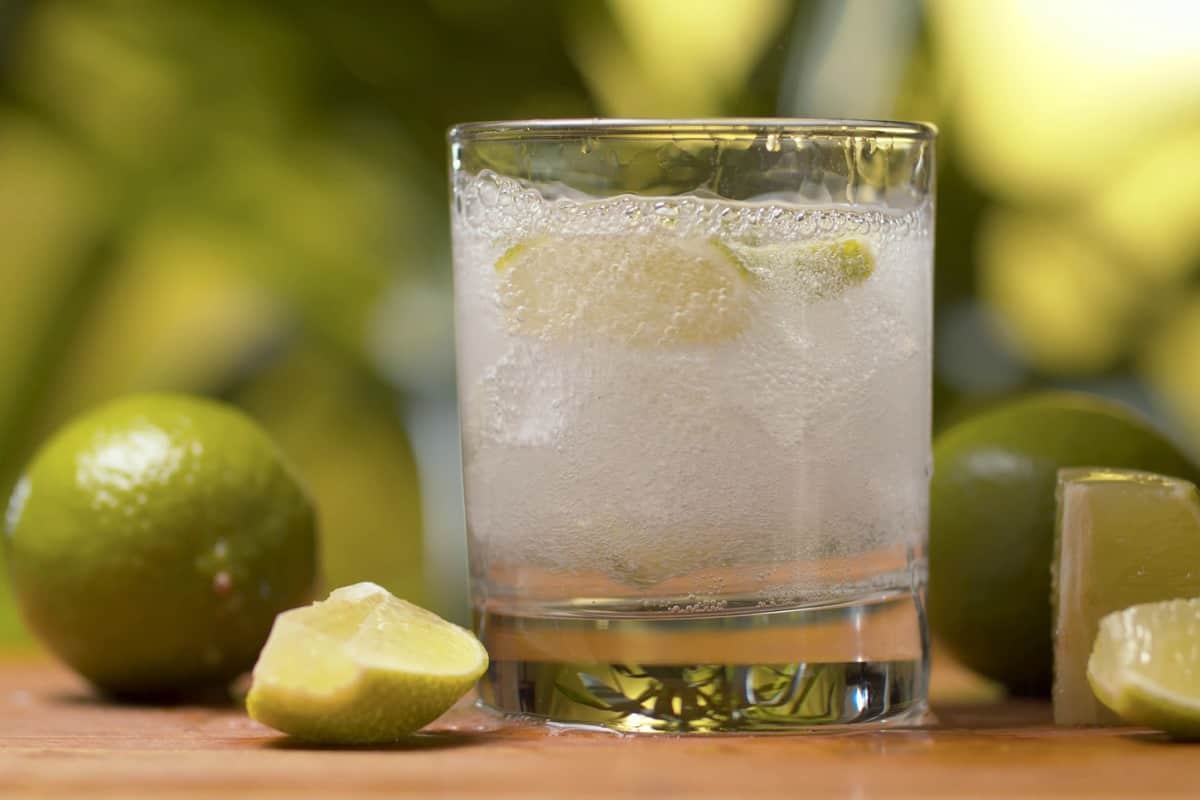
Seltzer water is pretty much a carbon copy of club soda, minus the added minerals. It's as bubbly as club soda, colorless, and odorless. If you're cooking something where the mineral taste of club soda doesn't jive, seltzer is your best bet.
In recipes, use it just as you would club soda. The 1:1 ratio works perfectly. You won't miss a beat, I promise.
Best for mixed drinks and cocktails as well as pancakes, waffles, or certain types of batters to add lightness and bubbles.
2. Sparkling Mineral Water
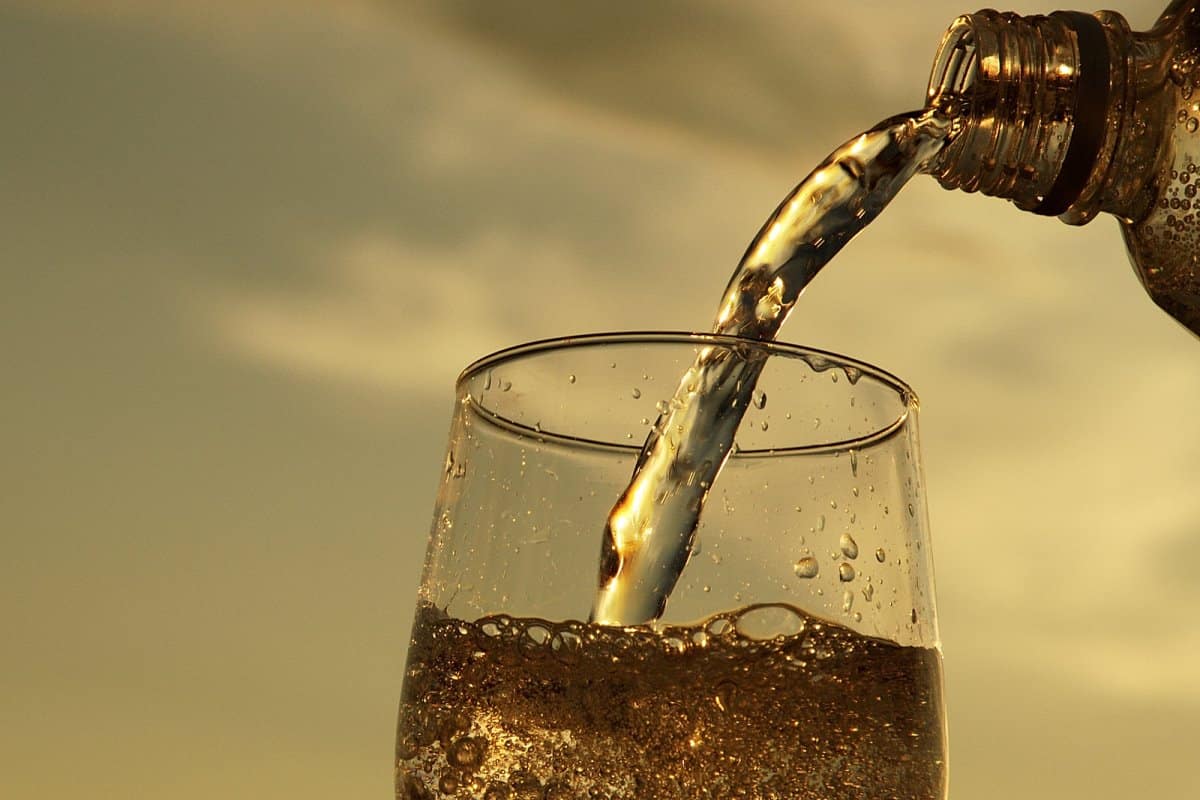
This is the fancy cousin of club soda, hailing from natural springs and filled with minerals straight from the source. The taste is a bit more complex than club soda due to these naturally occurring minerals.
When it comes to cooking, treat sparkling mineral water like club soda. Same ratio, 1:1, easy as pie. Just be aware that the mineral taste might come through in your dish, so use it in recipes where that'll be a benefit, not a hindrance.
Best for cocktails, non-alcoholic beverages, and baked goods.
3. Tonic Water
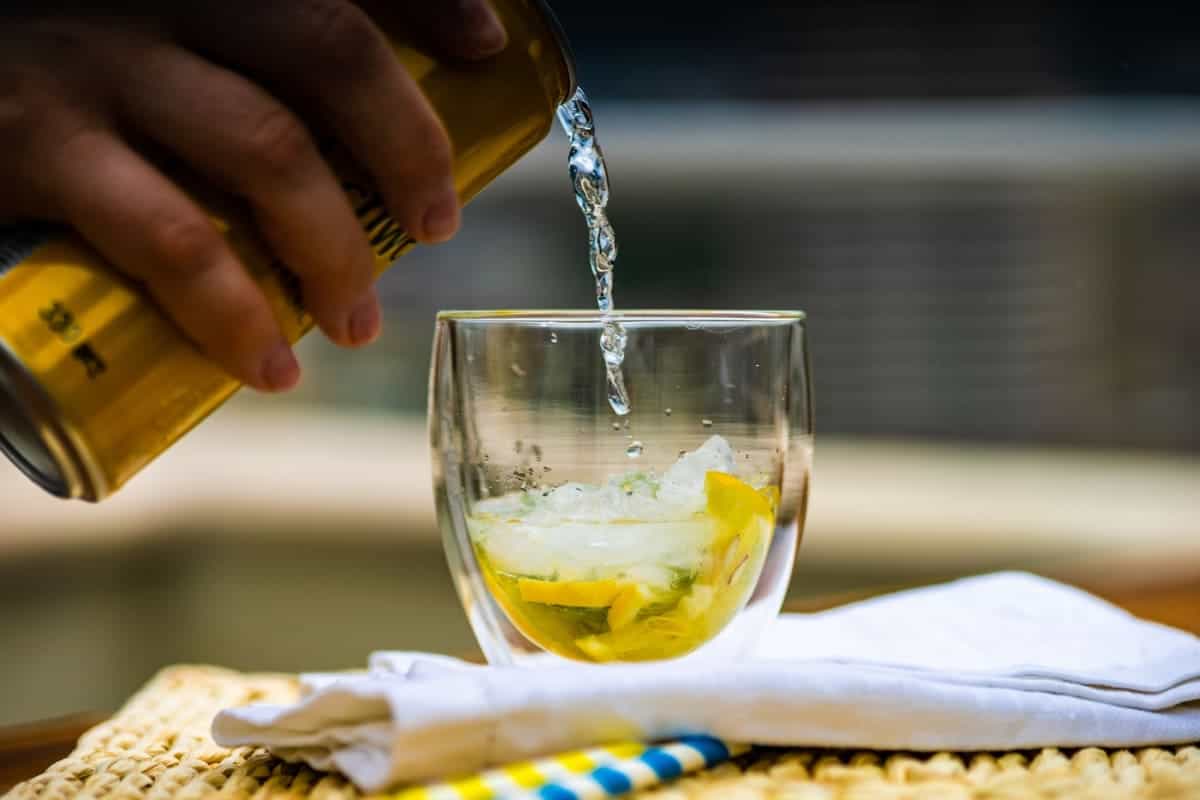
Tonic water is another fizzy option. It's bitter due to the presence of quinine and is often sweetened. This unique flavor profile can give your recipes an interesting twist.
If you're substituting club soda with tonic water, keep the 1:1 ratio. But remember, it's not the best choice for dishes that require a neutral taste. You wouldn't want a sweet and bitter surprise in your fluffy pancakes, would you?
Best for cocktails like gin and tonics.
4. Carbonated Soda
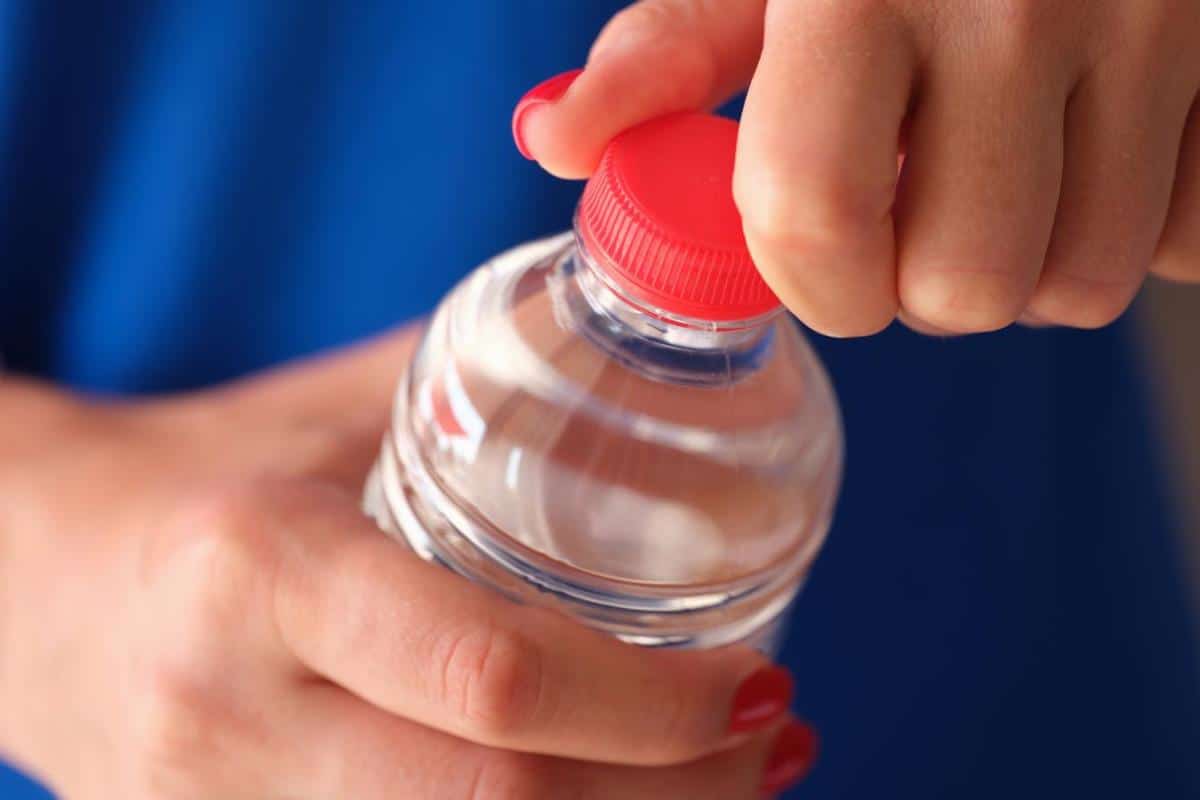
Carbonated soda, or soda pop, can be a fun substitute. It's sweet, fizzy, and comes in a variety of flavors.
When substituting with soda pop, you'll need to account for the sweetness. If the recipe calls for one cup of club soda, start with half a cup of soda and half a cup of regular water to balance it out. Adjust according to your taste.
Best for desserts or sweet drinks, where a little extra sugar won't hurt.
5. DIY Carbonated Water
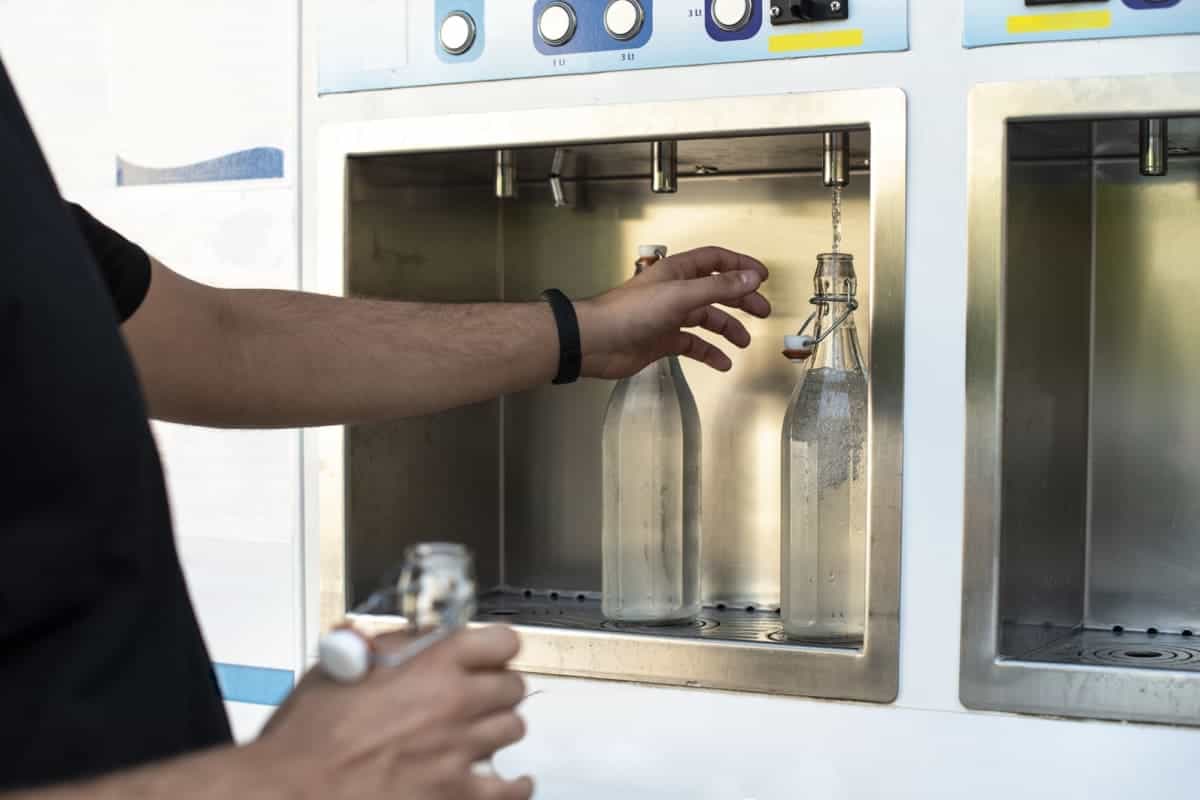
Last but not least, you can make your own fizzy water right at home with a soda siphon or a home carbonation machine. You can control the level of carbonation and have fun doing it!
When you're using your homemade version, keep the 1:1 ratio. It might take some trial and error to get the carbonation just right, but hey, that's part of the fun of cooking!
Each of these substitutes has its own personality, so pick the one that best suits your recipe and taste. Remember, cooking is not just about following recipes to a tee, but also about adapting and creating something uniquely yours.
Best for just about anything.
6. Ginger Ale
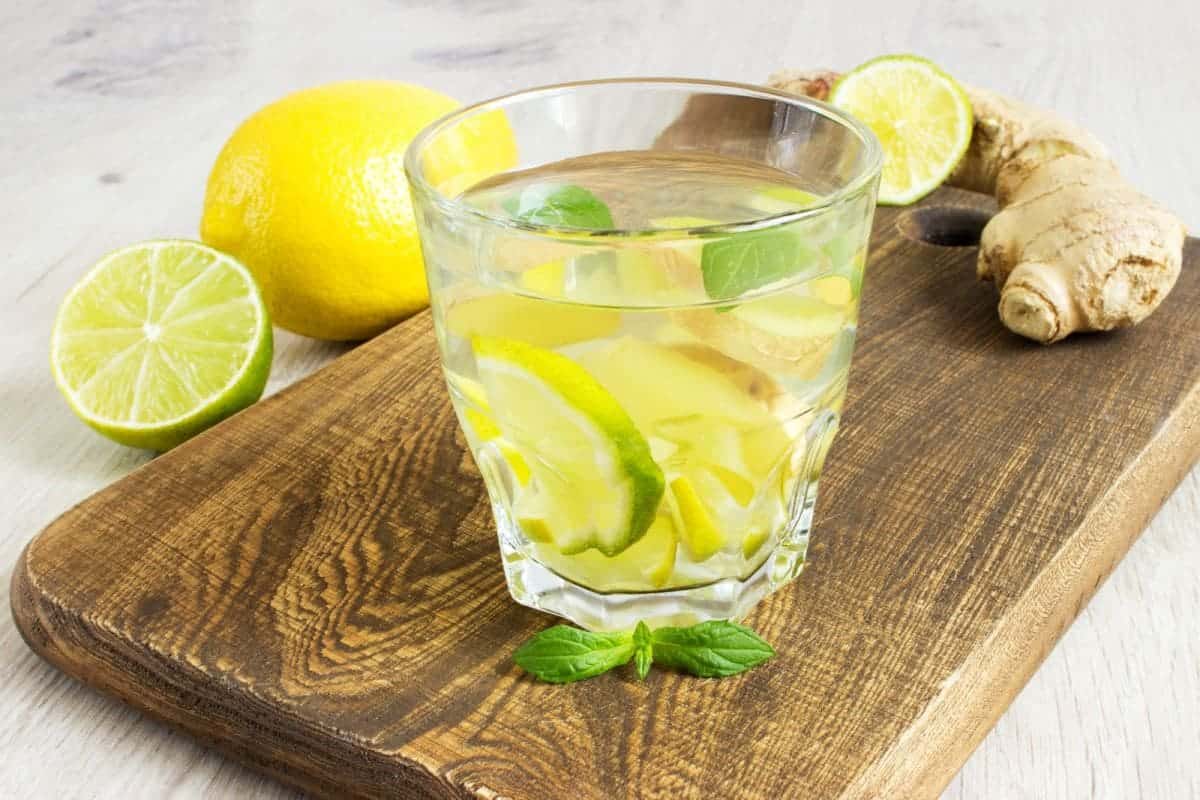
Ginger ale is a sweet, ginger-flavored, carbonated soft drink. It has a unique, spicy taste and the same effervescence that club soda boasts.
When considering ginger ale as a substitute for club soda, remember its distinct flavor profile. This means that it's perfect for cocktails or other recipes where a hint of ginger can enhance the flavor, but might not work as well for recipes that require a neutral taste.
In terms of replacing club soda with ginger ale, you're looking at a 1:1 substitution. But I'd recommend testing a small amount first, as the sweetness and ginger flavor can be quite pronounced, especially in savory dishes.
Best for mixed drinks, mocktails, and desserts.
Pro Tips for Success
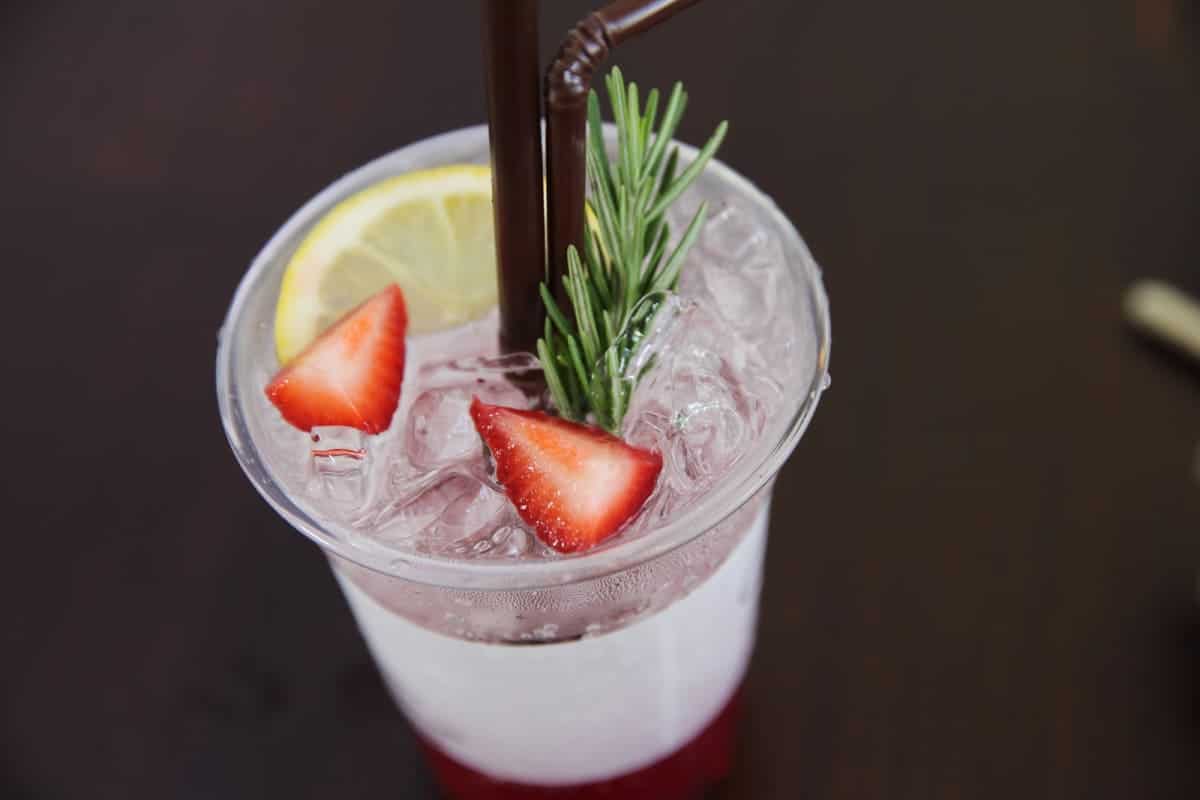
Consider the purpose: Understand the role of club soda in the recipe. Is it meant to add fizz, enhance texture, or provide a neutral base? This will help you choose an appropriate substitute.
Carbonated water versatility: Carbonated water, such as seltzer or sparkling mineral water, is the closest substitute for club soda. It can be used in most recipes without significantly altering the taste or texture.
Adjust flavors: If using a flavored substitute like ginger ale or carbonated soda, be aware that it will impart its distinct taste to the dish or beverage. Adjust other flavors accordingly to maintain balance.
Mind the sweetness: Some substitutes like ginger ale or carbonated sodas contain added sugars. If you prefer less sweetness, reduce the amount of sweetener in the recipe or opt for a sugar-free version.
Baking considerations: In baking, carbonated water works well as a substitute for club soda to add lightness. However, note that substitutions may affect the final texture or rise of baked goods, so adjust the recipe accordingly.
Experiment with mocktails: Use various carbonated substitutes to create unique mocktails or spritzers. Mix different flavors, add fruit juice or muddled fruits, and garnish creatively for refreshing and flavorful non-alcoholic beverages.
Taste and adjust: Always taste your dish or beverage after substituting club soda to ensure it meets your desired flavor and carbonation level. Adjust as needed with additional ingredients or adjustments.
Club Soda Substitute FAQs
Some popular substitutes for club soda include tonic water, sparkling mineral water, ginger ale, and carbonated soda. Each alternative has its unique flavor profile and may require recipe adjustments depending on the dish or cocktail being prepared.
Club soda can be used as a healthier substitute for sugary sodas in some cases. It provides fizziness without added sugars or artificial flavors. However, it lacks sweetness and distinct flavors found in regular sodas, so you might want to add fruit juices or other natural sweeteners if desired.
In recipes that call for still water, using club soda can add extra effervescence and texture to the final product. This works well in cocktails or light batters but might not be suitable when preparing dishes where bubbles are undesirable like soups or stews.
Yes, sparkling mineral water can be used as a substitute for club soda due to its similar carbonation levels. However, keep in mind that different brands of sparkling mineral waters have varying amounts of minerals which could affect taste profiles compared to traditional club sodas.
Fizzing to the Finish
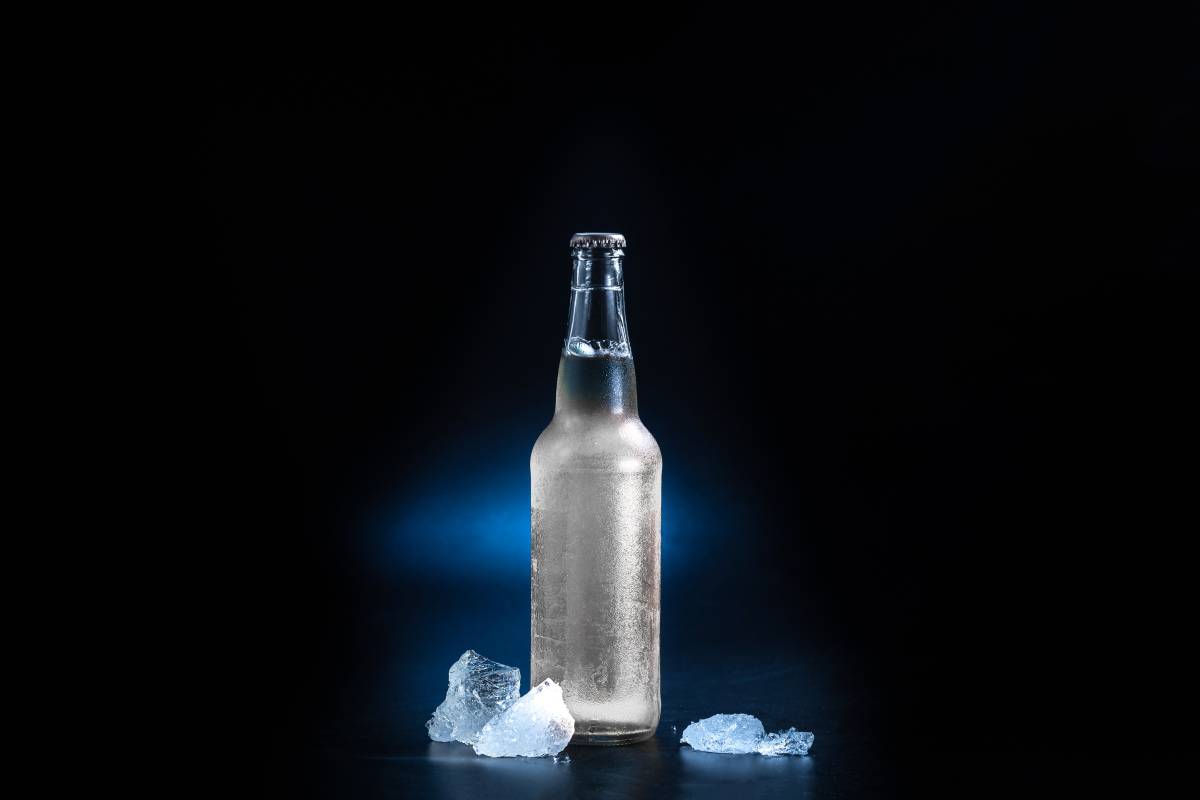
Finding the right club soda substitute can elevate your dishes and beverages in delightful ways.
Whether you opt for the versatile carbonated water, explore the unique flavors of ginger ale, or experiment with other creative alternatives, there are plenty of options to suit your needs.
Remember to consider the purpose of club soda in the recipe and adjust flavors accordingly.
For more ingredient substitutions and culinary inspiration, be sure to check out our blog, where you'll discover a treasure trove of tips and tricks to elevate your cooking and mixology adventures.
Embrace the art of substitution and let your creativity soar!
Recipe
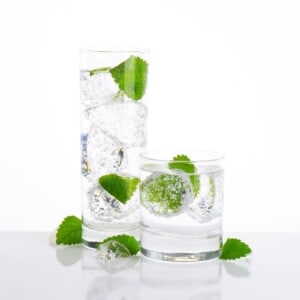
Best Club Soda Substitutes
Ingredients
- 1 cup Seltzer Water
- 1 cup Tonic Water
- ½ cup Carbonated Soda
Instructions
Option 1: Seltzer Water
- In recipes, use it just as you would club soda. The 1:1 ratio works perfectly.
Option 2: Tonic Water
- If you're substituting club soda with tonic water, keep the 1:1 ratio.
Option 3: Carbonated Soda
- If the recipe calls for one cup of club soda, start with half a cup of soda and half a cup of regular water to balance it out.
Notes
You can find the video in the post above. If you don't see a video, please check your browser settings.


Leave a Reply